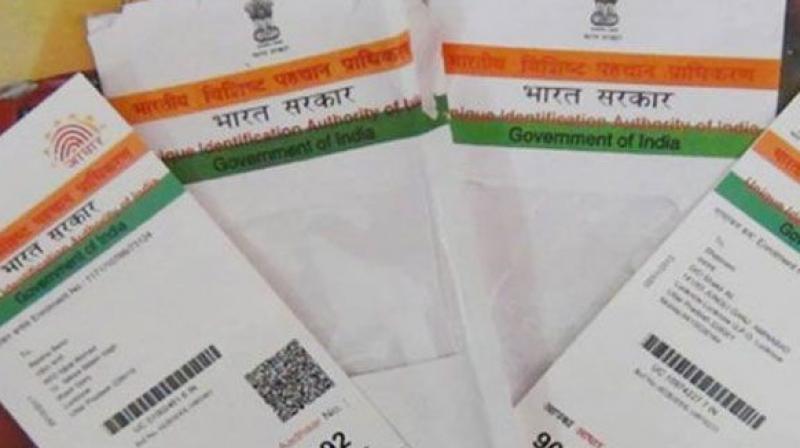Aadhaar must for sops by December 31, says Centre
The petitioners said the Aadhaar scheme couldn't be made mandatory.

New Delhi: The Centre informed the Supreme Court on Wednesday that it would extend the deadline for mandatory Aadhaar linkage to avail social security benefits from September 30 to December 31. Last week a nine-member bench had held the right to privacy to be a fundamental right and had referred a slew of petitions regarding the validity of Aadhaar for a fresh hearing by a three-judge bench.
Attorney-general K.K. Venugopal made this submission on behalf of the Centre before a bench of Chief Justice Dipak Misra and Justices Amitav Roy and A.M. Kanwilkar when senior counsel Shyam Divan, appearing for the petitioners, sought an early hearing on a bunch of petitions challenging the validity of Aadhaar being made mandatory for a host of schemes.
The CJI said that since the deadline was being extended till December 31, the petitions would be listed for final hearing in the first week of November. At this juncture, the A-G urged the CJI to list these matters before a five-judge Constitution bench and not before three judges.
The petitioners contended that the biometric data and iris scan being collected for issuance of the Aadhaar card violated the fundamental right to privacy of citizens as personal data was not protected, and was vulnerable to exposure and misuse. While opposing the relaxation of the order, it was argued that Aadhaar was an invasion of privacy and a violation of basic human rights.
Aadhaar link has hit sop beneficiaries: Centre
The petitioners challenged the various notifications issued by the Centre insisting on Aadhaar for availing various benefits, including the mid-day meal scheme, scholarships, admissions to various institutions, domestic air travel, mobile phones.
The petitioners said the Aadhaar scheme couldn't be made mandatory. They noted that Aadhaar enrolment had been made without adequate verification and in many cases the Centre has itself said enrolment was over 110 per cent of the recorded population in many states, giving rise to concern about fraud within the system. In some places, including Delhi, the enrolment level was in excess of 115 per cent.
They argued that people were being denied access to basic needs like food and adequate nutrition; mid-day meals in school; rehabilitation benefits for families of victims and survivors affected by the Bhopal gas leak, etc.

